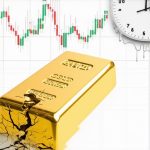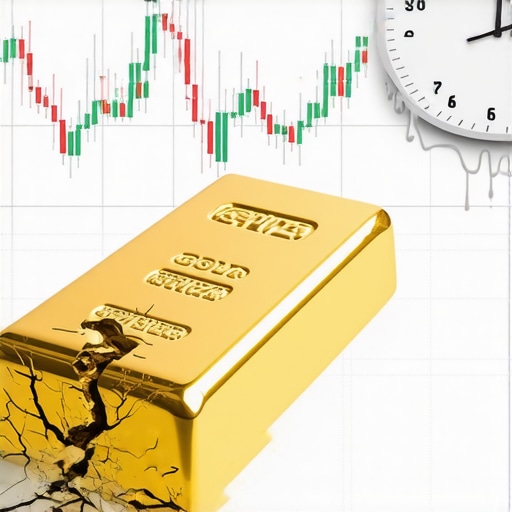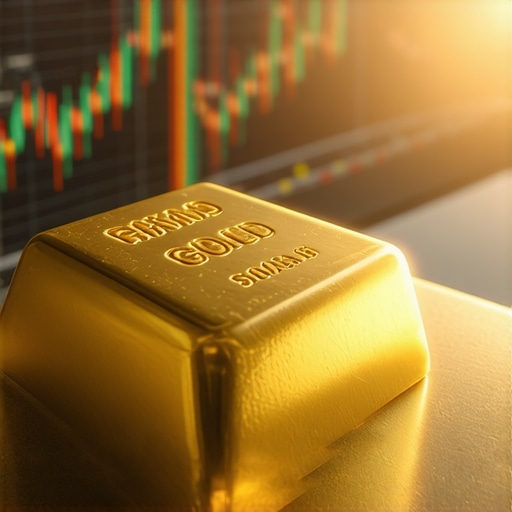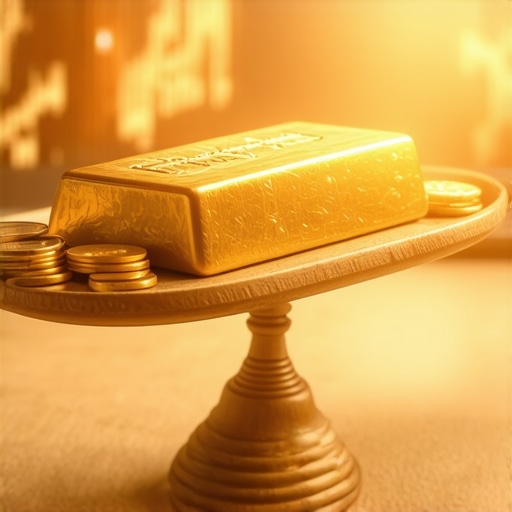Introduction to Geopolitical Events and Their Influence on Gold Prices
The world of gold investment is intricately linked with geopolitical events. Understanding how these events impact gold prices is crucial for investors looking to navigate the often tumultuous waters of the financial markets. Gold has long been viewed as a safe-haven asset, and its value tends to fluctuate based on global political stability, economic conditions, and investor sentiment. In this article, we’ll explore the various ways in which geopolitical events can affect gold prices, helping you to make informed investment decisions.
The Relationship Between Gold Prices and Geopolitical Stability
Geopolitical stability is a significant factor affecting gold prices. When political unrest or conflict arises, investors often flock to gold as a refuge for their capital. This behavior is driven by gold’s historical reputation as a stable and reliable store of value during uncertain times. For instance, during periods of heightened tension, such as military conflicts or diplomatic crises, gold prices typically rise as demand increases.
Moreover, the role of gold as a hedge against geopolitical risks is well-documented. Investors perceive gold not just as a commodity but as an essential asset for wealth preservation. This perception can lead to significant price swings in response to news and events that signal geopolitical instability.
Case Studies: Historical Examples of Geopolitical Events Affecting Gold Prices
A historical perspective can shed light on how specific geopolitical events have influenced gold prices. For example, the 9/11 terrorist attacks in 2001 resulted in a surge in gold prices as the market reacted to the immediate uncertainty. Investors sought safety, leading to increased demand for gold, which pushed prices higher.
Similarly, the ongoing tensions in the Middle East and trade disputes between major economies, such as the U.S. and China, have been catalysts for fluctuations in gold prices. These events create a ripple effect, influencing not only the price of gold but also the broader financial markets. As investors anticipate potential consequences, they often adjust their portfolios accordingly, which can lead to increased volatility in gold prices.
Economic Indicators and Their Connection to Geopolitical Events
In addition to direct geopolitical events, economic indicators also play a significant role in shaping gold prices. Factors such as inflation rates, interest rates, and currency strength can be influenced by geopolitical developments. For instance, an increase in geopolitical tensions may lead to concerns about inflation, prompting investors to seek the security of gold. Moreover, when interest rates are low, the opportunity cost of holding gold diminishes, making it a more attractive option for investors.
Understanding these connections can help investors better gauge when to enter or exit gold positions. By keeping an eye on both geopolitical developments and economic indicators, you can make more informed decisions when it comes to your gold investments.
For a deeper dive into gold’s role in a diversified investment portfolio, check out our post on the role of gold in portfolio diversification. This resource will provide you with additional insights into how gold can fit into your overall investment strategy amidst geopolitical uncertainties.
The Influence of Global Events on Gold Demand
Global events not only affect political stability but also have profound implications for gold demand. For instance, natural disasters or economic crises can lead to shifts in investor behavior towards gold. When markets are volatile, or when there is a decline in trust in fiat currencies, gold often sees an increase in demand as a reliable asset. Investors tend to view gold as a hedge against uncertainty, prompting them to buy more during tumultuous times.
Additionally, the demand trends for gold can shift dramatically based on global economic forecasts. Understanding these trends can help investors make educated decisions regarding their gold investments, especially when geopolitical tensions rise.
Geopolitical Tensions and Their Effect on Long-Term Gold Prices
Geopolitical tensions, such as wars or international disputes, can have lasting impacts on gold prices. For example, the ongoing conflict between Russia and Ukraine has caused significant fluctuations in gold prices as investors react to the uncertainty surrounding energy supplies and global trade. Historically, such events have led to increased gold purchases, driving prices up as investors seek to secure their wealth.
Moreover, shifts in government policies, such as sanctions or trade tariffs, can further exacerbate these tensions. Investors should stay informed about international relations and their potential effects on gold prices, as these dynamics often lead to sudden market reactions. For further insights into how gold can act as a financial safeguard, consider reading our article on the role of gold as a hedge.
Investor Sentiment and Market Reactions to Geopolitical Events
Investor sentiment is another crucial factor that can influence gold prices during geopolitical crises. When uncertainty looms, the fear and anxiety of investors often lead to increased gold purchases. Conversely, when geopolitical tensions ease, investors might shift their focus back to higher-risk assets, causing gold prices to drop. Understanding this psychology can help investors anticipate market movements.
Moreover, market analysts often monitor price volatility of gold as a response to geopolitical events. By analyzing patterns and historical data, investors can better predict future price movements, allowing for more strategic investment decisions.
The Importance of Diversifying Your Investment Portfolio
Given the unpredictable nature of geopolitical events and their impact on gold prices, diversification is key to maintaining a balanced investment portfolio. Investors should consider including a mix of assets, such as stocks, bonds, and gold, to mitigate risks. This approach not only enhances potential returns but also provides a safeguard during periods of instability.
For more on how to effectively diversify your investment portfolio with gold, check out our guide on the role of gold in portfolio diversification. It offers valuable strategies for incorporating gold into your overall investment strategy.
Monitoring Economic Indicators Amidst Geopolitical Uncertainty
In addition to understanding geopolitical events, investors should also monitor various economic indicators that can signal potential changes in gold prices. Inflation rates, unemployment figures, and central bank policies are all vital data points to consider. For instance, rising inflation often leads to increased gold purchases as investors seek to protect their purchasing power.
Furthermore, changes in interest rates can significantly affect gold prices. When central banks lower interest rates, the opportunity cost of holding gold decreases, making it a more attractive investment. Keeping an eye on these economic indicators will empower investors to make informed decisions, especially during times of geopolitical uncertainty.
The Impact of Central Bank Policies on Gold Prices
Central banks play a pivotal role in shaping the economic landscape, and their policies can significantly influence gold prices. For instance, when central banks adopt an accommodative monetary policy, such as lowering interest rates or implementing quantitative easing, it often leads to increased demand for gold. Lower interest rates reduce the opportunity cost of holding non-yielding assets like gold, making it a more attractive investment. In this context, understanding the role of gold as a financial hedge becomes paramount, as investors seek to protect their wealth against inflation and currency devaluation.
Understanding Inflation and Gold Prices
Inflation is another critical economic indicator that can affect gold prices. As inflation rises, the purchasing power of fiat currencies declines, prompting investors to turn to gold as a store of value. This relationship is particularly evident during times of economic instability when inflation fears escalate. Keeping an eye on inflation trends allows investors to anticipate potential increases in gold demand. For insights into how inflation influences gold markets, explore our article on gold as a hedge against inflation.
Geopolitical Uncertainty and Gold Demand Fluctuations
Geopolitical uncertainty not only influences investor sentiment but also affects gold demand on a broader scale. Events such as elections, military conflicts, and trade tensions can create significant fluctuations in gold prices. For example, during election cycles, political instability can lead to increased demand for gold as investors seek security amid potential policy changes. Similarly, trade wars can disrupt global supply chains, prompting investors to buy gold as a safeguard against economic downturns.
Moreover, the trends in gold demand can shift rapidly in response to changing geopolitical landscapes. By staying informed about these trends, investors can better position themselves to capitalize on emerging opportunities.
The Role of Gold in Asset Allocation Strategies
Incorporating gold into an investment portfolio can enhance overall asset allocation strategies. Gold’s low correlation with other asset classes, such as stocks and bonds, can provide a buffer against market volatility. As geopolitical tensions rise, investors may choose to increase their gold holdings to mitigate risks associated with other investments. For a comprehensive approach to asset allocation, consider our guide on the role of gold in portfolio diversification, which discusses how to strategically integrate gold into your investment strategy.
Monitoring Global Economic Events for Gold Price Insights
To effectively navigate the gold market, investors should monitor global economic events that can signal changes in gold prices. For instance, major economic reports, such as GDP data and employment figures, can impact investor sentiment and market dynamics. Additionally, geopolitical events like Brexit or trade agreements can lead to shifts in currency values and inflation expectations, further influencing gold prices.
By being proactive and staying informed about these developments, investors can make more informed decisions regarding their gold investments. For those looking to delve deeper into market dynamics, our article on key factors influencing gold prices provides valuable insights into the complex interplay between global events and gold market trends.
The Role of Global Economic Events in Shaping Gold Prices
Global economic events, including shifts in trade agreements and major economic policies, can create significant ripples in the gold market. As these events unfold, investors often reassess their portfolios, leading to fluctuations in gold prices. For instance, when trade tensions escalate, the uncertainty can drive investors towards gold, viewing it as a safe-haven asset. This behavior underscores the importance of understanding the interconnectedness of global economies and gold price dynamics.
Monitoring critical economic indicators such as GDP growth and unemployment rates can provide valuable insights into upcoming changes in gold prices. For example, if a major economy reports sluggish growth, it may prompt investors to shift their focus to gold as a protective measure against potential economic downturns. To explore how to strategically position yourself in such scenarios, refer to our article on key factors influencing gold prices.
Analyzing Global Supply Chain Disruptions
Supply chain disruptions, often triggered by geopolitical tensions or natural disasters, can also affect gold prices significantly. When production and distribution channels are interrupted, it can lead to scarcity, thereby increasing demand for gold. Investors should pay close attention to global supply chain issues, as they can serve as early indicators of potential price shifts in the gold market.
For instance, the recent pandemic has shown how quickly global supply chains can be affected, leading to increased interest in gold. This situation illustrates why investors must remain vigilant and adaptable to changes in the global economic landscape. To further understand how these dynamics work, consider reading our guide on understanding gold demand trends.
The Impact of Currency Fluctuations on Gold Investments
Currency fluctuations play a crucial role in determining gold prices. A strong U.S. dollar typically leads to lower gold prices, as gold becomes more expensive for holders of other currencies. Conversely, when the dollar weakens, gold prices often rise. Investors should monitor currency strength as it can provide insights into potential gold price movements.
In a broader context, understanding how central bank policies influence currency values is essential. For example, if a central bank implements policies that devalue its currency, it can lead to increased gold demand as investors seek to preserve their wealth. To delve deeper into this relationship, check out our article on understanding the basics of investing in gold stocks.
Gold as a Hedge Against Economic Instability
Gold is widely recognized as a hedge against economic instability. Investors often turn to gold during times of economic uncertainty, as it retains its value better than most other assets. This behavior reinforces gold’s role as a critical component of a diversified investment portfolio. By incorporating gold into their asset allocation strategies, investors can mitigate risks associated with market volatility.
For more insights on how to effectively integrate gold into your investment strategy, explore our guide on the role of gold in portfolio diversification. This resource provides valuable tips on balancing your investments to navigate through uncertain economic times.
Conclusion: Staying Informed for Strategic Gold Investments
In conclusion, understanding the various factors influencing gold prices, including geopolitical events, economic indicators, and market sentiment, is vital for making informed investment decisions. By staying informed and adaptable, investors can better position themselves to navigate the complexities of the gold market. Remember to continuously monitor the evolving landscape and leverage resources like our site to enhance your investment strategies.
Frequently Asked Questions About Gold Prices and Geopolitical Events
1. How do geopolitical events affect gold prices?
Geopolitical events such as wars, elections, and trade tensions create uncertainty in the financial markets. Investors often turn to gold as a safe-haven asset during these times, resulting in increased demand and higher gold prices.
2. What role do economic indicators play in gold price fluctuations?
Economic indicators like inflation rates, interest rates, and employment figures can significantly influence gold prices. For example, rising inflation often leads to increased gold purchases as investors seek to preserve their purchasing power.
3. Why is gold considered a hedge against inflation?
Gold is viewed as a hedge against inflation because, unlike fiat currencies, its value tends to remain stable or increase during inflationary periods. As the purchasing power of money declines, investors flock to gold, driving its prices higher.
4. How can I stay informed about global economic events affecting gold?
To stay informed, regularly monitor reliable financial news outlets, subscribe to economic reports, and follow expert analyses. Resources like Bloomberg, Reuters, and the World Gold Council provide valuable insights into gold market trends.
5. What impact do central bank policies have on gold prices?
Central bank policies directly influence gold prices. For instance, when central banks lower interest rates, the opportunity cost of holding gold decreases, making it more appealing to investors, which can drive prices up.
6. Are there specific geopolitical events that historically lead to spikes in gold prices?
Yes, historical events like the 9/11 attacks, the Gulf War, and the ongoing conflict in Ukraine have led to significant spikes in gold prices as investors sought security amidst chaos.
7. How can I incorporate gold into my investment portfolio?
Incorporating gold can be done through various means, including physical gold, gold ETFs, or gold mining stocks. A diversified approach that includes gold can help mitigate risks during economic instability.
8. What are the long-term trends in gold demand?
Long-term trends indicate that gold demand typically rises during periods of economic uncertainty, geopolitical tensions, and inflationary pressures. Understanding these trends can help investors make strategic decisions.
9. How does currency fluctuation affect gold investments?
A strong U.S. dollar typically leads to lower gold prices, while a weaker dollar often results in higher gold prices. Investors should monitor currency trends to anticipate potential changes in gold prices.
10. Is gold a good investment for beginners?
Gold can be a good investment for beginners, as it serves as a hedge against economic uncertainty and can help diversify an investment portfolio. However, it’s essential to conduct thorough research and consider personal financial goals.
Authority Resources for Gold Investment Insights
For those looking to deepen their understanding of gold investments and the impact of geopolitical events, several authoritative resources are available:
- World Gold Council – A leading authority on gold, providing insights into gold demand, supply, and investment trends.
- Bloomberg – Offers comprehensive financial news and analysis, including updates on gold prices and market trends.
- Reuters – A trusted source for global news, including economic and geopolitical events that influence gold markets.
- Investopedia – Provides educational content on investing in gold and understanding market dynamics.
- CME Group – Offers insights into commodities trading, including gold futures and options.
Conclusion: The Importance of Staying Informed in Gold Investment
In conclusion, understanding the intricate relationship between geopolitical events and gold prices is essential for making informed investment decisions. By keeping abreast of global developments, economic indicators, and market sentiment, investors can strategically navigate the complexities of gold investments. Whether you’re new to investing or a seasoned trader, incorporating gold into your portfolio can provide a hedge against uncertainty and enhance your overall investment strategy.










I found this overview of how geopolitical instability influences gold prices quite insightful. As someone who’s been investing in gold for a few years, I can attest that during times of heightened tension like recent trade disputes or conflicts, gold tends to become a top choice for securing wealth. However, I’ve also noticed that the immediate reactions can sometimes be unpredictable, depending on market sentiment and other economic factors. One thing I wonder about is how regional conflicts versus global tensions differently impact gold demand—do you think localized unrest has as significant an effect? It’d be interesting to hear how others gauge when to increase their gold holdings in these fluctuating environments. Overall, staying informed through reliable sources has helped me make better decisions, especially when economic indicators like inflation and interest rates start shifting unexpectedly. Have you found specific economic signals that are more reliable indicators of upcoming gold price movements during crises?